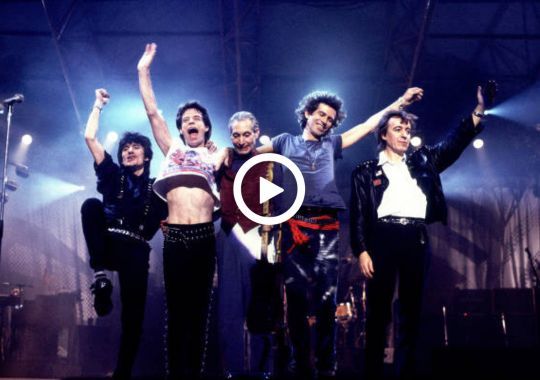ABOUT SONG
“(I Can’t Get No) Satisfaction” is an iconic song by The Rolling Stones, released in 1965. Written by Mick Jagger and Keith Richards, the song quickly became one of the band’s most famous hits, topping charts worldwide and becoming a symbol of the rebellious spirit of rock and roll. The song’s distinctive guitar riff, played by Richards, is instantly recognizable and has become one of the most iconic riffs in rock history. Jagger’s dynamic vocals and provocative lyrics add to the song’s allure, making it a timeless anthem for generations of music lovers. With its raw energy and rebellious attitude, “(I Can’t Get No) Satisfaction” remains a cornerstone of The Rolling Stones’ extensive catalog.
From the moment Jagger sings the opening lines, “I can’t get no satisfaction, ’cause I try and I try and I try and I try,” listeners are drawn into a world of frustration and disillusionment. The song’s driving rhythm and infectious melody create an atmosphere of urgency and defiance, inviting audiences to join in on the rebellion. “(I Can’t Get No) Satisfaction” is a rallying cry for anyone who has ever felt frustrated by the pressures of society and the quest for fulfillment. With its bold lyrics and rebellious spirit, the song captures the essence of rock and roll and solidifies The Rolling Stones’ status as cultural icons.
MEANING BEHIND
At its core, “(I Can’t Get No) Satisfaction” is a critique of consumer culture and the emptiness of materialism. The song’s lyrics tell the story of a protagonist who is bombarded with messages promising happiness and fulfillment through the acquisition of products and experiences, yet finds themselves perpetually dissatisfied. Jagger’s defiant delivery conveys a sense of frustration and disillusionment, as he sings of the protagonist’s struggle to find meaning and fulfillment in a world driven by commercialism and superficiality. “(I Can’t Get No) Satisfaction” serves as a reminder of the limitations of material wealth and the importance of seeking fulfillment from within.
Beyond its surface-level critique of consumer culture, “(I Can’t Get No) Satisfaction” also speaks to the broader human experience of longing and discontent. The song’s driving rhythm and provocative lyrics create an atmosphere of rebellion and defiance, mirroring the protagonist’s sense of disillusionment and defiance. The Rolling Stones’ dynamic performance adds depth and authenticity to the song’s message, creating a sense of connection with listeners who have experienced the frustration of unfulfilled desires.
Furthermore, “(I Can’t Get No) Satisfaction” showcases The Rolling Stones’ talent for infusing their music with social commentary and cultural critique. The song’s infectious melody and bold lyrics create a sense of urgency and defiance that is impossible to ignore. With its timeless appeal and universal themes of longing and discontent, “(I Can’t Get No) Satisfaction” continues to resonate with audiences around the world.
In conclusion, The Rolling Stones’ “(I Can’t Get No) Satisfaction” is more than just a rock and roll anthem – it’s a powerful critique of consumer culture and a rallying cry for those who refuse to be defined by material possessions. With its bold lyrics and infectious energy, this iconic track remains a favorite among fans of The Rolling Stones and rock music alike. Through their dynamic performance and thought-provoking lyrics, The Rolling Stones invite listeners to challenge the status quo and seek fulfillment on their own terms. “(I Can’t Get No) Satisfaction” stands as a testament to the band’s enduring legacy and their ability to capture the spirit of rebellion and defiance through their music.
